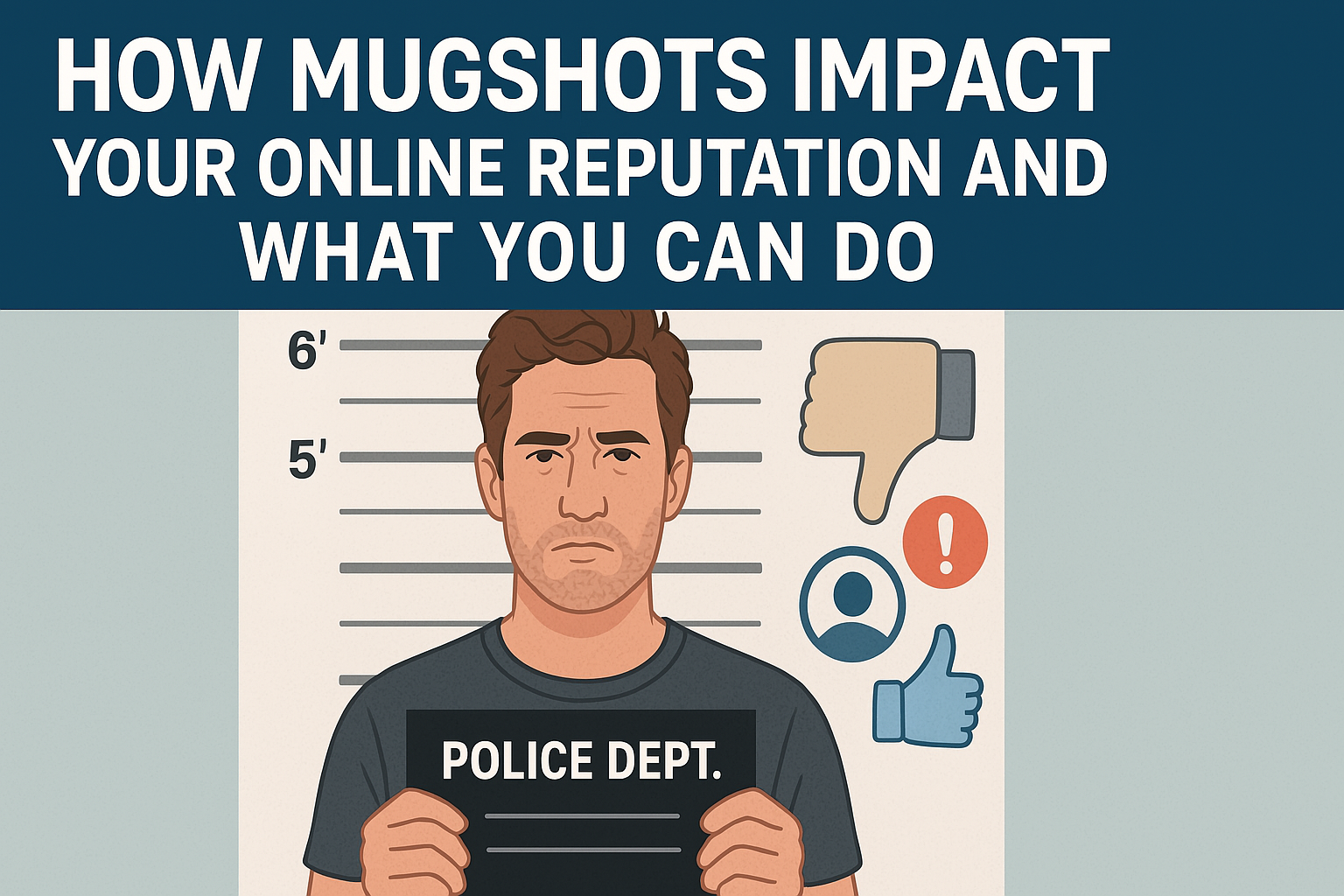Estimated reading time: 4 minutes
Table Of Content
Why Mugshots Stay Online—and Why It Matters
Once a mugshot is uploaded by law enforcement or third-party websites, it can appear in search engine results indefinitely. Even if charges are dropped or expunged, the photo often remains public.
Key Impacts of Public Mugshots:
- Employment consequences: Hiring managers often search applicants’ names.
- Social judgment: Friends, partners, and colleagues may misinterpret the image.
- Business credibility: Entrepreneurs risk losing deals or clients.
- Search engine dominance: Mugshots tend to rank high due to backlinks and media coverage.
Even one image can control your narrative online—unless you take control.
How Search Engines Amplify the Damage
Search engines like Google prioritize content that is:
- Frequently visited
- Linked to by reputable sources
- Hosted on aged domains
Mugshot websites exploit these factors to ensure their content ranks well. As a result, your arrest photo may appear on the first page of Google even if the arrest was minor or resolved favorably.
Legal Landscape of Mugshot Publishing
Is It Legal to Post Mugshots?
Yes. Mugshots are public records in many jurisdictions, meaning websites can legally publish them. However, recent laws are challenging this practice.
Notable State Laws Addressing Mugshots:
- California: Prohibits sites from charging fees for removal
- Georgia: Requires prompt removal if charges are dropped
- Texas: Makes it illegal to profit from mugshot takedown services
“The public’s right to know does not include the right to destroy reputations.” — Legal Scholars Review
Check your state laws using resources like the National Conference of State Legislatures.
How Mugshots Affect Reputation Long-Term
The negative effects aren’t just about first impressions—they can change the trajectory of your personal and professional life.
Real-World Consequences:
- Job rejection after background search
- Suspension or loss of professional licenses
- Breakdowns in personal relationships
- Stigma in local community or housing applications
Even after a case is resolved or expunged, people often treat the mugshot as proof of guilt. That’s why timely removal and suppression are essential.
How to Remove or Bury a Mugshot Online
1. Contact the Website Directly
Many mugshot sites offer removal options. Some require:
- Proof of dismissal, expungement, or sealing
- ID verification
Be cautious—some sites operate under different names and share databases.
2. Use Search Engine Removal Tools
- Google offers a content removal request tool
- Submit requests for outdated or legally removed content
3. Pursue Legal Action (If Applicable)
You may qualify for:
- Cease and desist letters
- Court orders compelling removal
- Defamation lawsuits if false or misleading content is involved
SEO Suppression Tactics: Push Down the Mugshot
If removal isn’t possible, the next best option is pushing the content down in search results.
Key Strategies:
- Launch a personal website (firstnamelastname.com)
- Publish guest articles on reputable blogs
- Optimize LinkedIn, Facebook, Twitter, Instagram profiles
- Upload YouTube videos about professional projects or volunteer work
- Encourage positive press via interviews or PR submissions
Weekly Content Plan Example:
- Monday: Publish blog post
- Wednesday: Share resume video on YouTube
- Friday: Post thought-leader content on LinkedInConsistency builds authority—and over time, Google reorders results in your favor.
Why Mugshots Can Still Appear After Expungement
Expungement clears your record legally, but it doesn’t delete the content from the internet. You’ll still need to:
- Notify hosting sites
- Provide legal documentation
- Submit takedown requests to Google and Bing
How Defamation Defenders Helps
At Defamation Defenders, we:
- Locate every copy of your mugshot
- Contact publishers and hosting providers
- Draft and send legal removal notices
- Suppress links via strategic content campaigns
- Monitor and protect your reputation long-term
📞 Get Your Free Case Review and start clearing your name today.
FAQ: Mugshots and Online Reputation
In some states, yes—but legislation is reducing this practice. Know your rights.
No. You must contact the site and request takedown.
On average, 3–6 months depending on the content and your online activity.
Legal subpoenas can reveal the identity of anonymous posters in some cases.
We cannot guarantee third-party actions, but we maximize your chances through proven tactics.
If you liked this content you might want to check out these posts from our blog:



